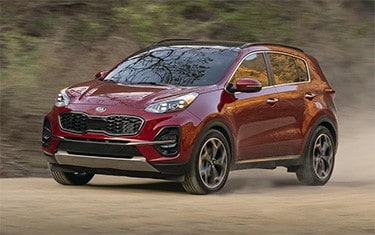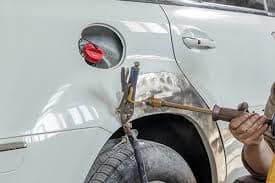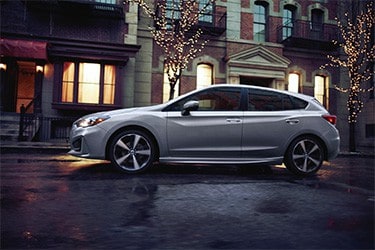10 Tips That Will Help Retain Your Car’s Resale Value

It’s easy to get excited about your new car when you get it, but that’s also the time to start thinking about what you can do to limit depreciation and retain as much of the car’s resale value as you can.
Depreciation is the biggest factor in determining the resale value of your car when you come to sell it, but there are several things you can do to protect the resale value of your car and keep depreciation to a minimum.
10 things you can do to help protect the resale value of your car are:
- Think about where you park
- Clean your vehicle regularly
- Use a good paint protection product
- Keep up with servicing and maintenance
- Keep all documents and receipts together
- Repair any damage
- Don’t smoke in your vehicle
- Drive carefully
- Buy the right car in the first place
- Think about leasing next time
1. Think about where you park
Where you park your car at home and when you’re out and about at work or play really does matter, and thinking about it can save you time and money. When you’re at home if you can park in a garage that’s great because it will protect your car from the elements and also prevents anyone from trying to break into it or steal it.
If you can’t park in a garage or some sort of cover, at least try and avoid parking under a tree. Tree sap can do a lot of damage to your paintwork if it’s left, but birds perch in trees and you know what they’re likely to do to your car.
Bird droppings can be acidic and therefore corrosive, so try and park where it’s less likely to be a problem and clean it off as soon as you can if they do manage to target you.
It’s not just the natural elements you need to think of when parking your car either. A big cause of damage to a vehicle is done in parking lots by other drivers. Opening a car door into the next car is a common cause of annoying small dents, but more serious damage isn’t unheard of either in parking lots.
Instead of parking as close to where you need as possible, look for space a little further away from where you’re less likely to have other cars close to you.
2. Clean your vehicle regularly
Don’t just wait for birds and trees to do their stuff on your car before you clean it. Most of us clean our new car every few days when we first get it, but the novelty quickly wears off and the gap between cleans soon grows. Regularly cleaning your car not only keeps the paint in good condition, but it also means you notice dents and other minor damage quicker than you might do otherwise.
I’m not just talking about the exterior either. The inside of your car should be looked after just as much as the exterior. If you get a stain on a seat or a carpet you’ll have a better chance of removing it if you deal with it sooner rather than later.

3. Use a good paint protection product
Paint protection products get a bad reputation at times because some dealers have been known to charge way too much for products that are simply not worth it. This doesn’t mean they’re all bad though, and using a really good product is going to help protect your paint from all sorts of contaminants.
To find out more about dealer-applied paint protection to see if you should get it when you buy a new vehicle, make sure you check out my blog which looks at the subject in more detail.
Even if you haven’t gone for a costly paint protection product, at least use wax or some sort of polish when you’ve washed and dried your car. Some of the spray polishes that are available today are quick and easy to use and deliver a superb finish you’ll be very proud of as well as protecting your vehicle and its resale value.
4. Keep up with servicing and maintenance
If you’ve bought a brand new car I’d like to think you’d keep up with the manufacturer’s service schedule without having to be told, but keeping up with all maintenance is an investment in the future value of your car. Even though it might be a pain to part with cash to get something fixed, you really should see it as an investment.
Fixing something right away might cost a few dollars you could use for something more interesting, but spending a little right away could avoid having to spend a lot more if you leave something and it then turns into a bigger problem.
Remember to keep all your receipts too as they can be used to show prospective buyers in the future that no expense has been spared in keeping the vehicle in top condition.
Needless to say, a full service history is worth its weight in gold, especially if all the servicing has been done by the main dealer.
5. Keep all documents and receipts together
It shouldn’t need saying that you should keep all the important documents for your vehicle, but make sure they’re all together in one place like a folder so none get lost. It’s also a great idea to hang on to any bills or receipts for work you have done on your vehicle to show potential buyers when the time comes.
Some people think it’s better to keep quiet about any faults you’ve had to get fixed, to stop potential buyers from thinking you’re trying to sell a problem vehicle. That’s simply not the case most of the time.
Being able to show you’ve had things fixed illustrates the fact you’ve maintained the vehicle well, and that there were faults in the past the new owner won’t have to worry about because you’ve already had them sorted.
Many vehicles when they’ve been around for a few years have known issues that are widely known about. If you have receipts to show your vehicle has had a known issue fixed it can only help with the resale value.
6. Repair any damage
If you leave some minor damage until some unspecified time in the future, one of two things is likely to happen. On one hand, it could get worse and turn into s bigger and more costly fix, or you might never get around to it and it will hit your resale value when someone is looking at buying your car.
I’m not saying take your car into an expensive body shop as soon as you spot a slight ding in a door panel from parking at the mall parking lot, but once there are a couple of dings or if there’s something more substantial that needs attention, then get it done.
There are companies all over the country that will come out and do minor repairs at your home or place of work, and they’ll give you a quote before you commit to having any work done.

7. Don’t smoke in your vehicle
I don’t care if you’re a smoker or if someone you give a lift to regularly is a smoker, the smell of stale tobacco inside a car is always a big put-off when it comes time to sell. If you absolutely insist on smoking in your vehicle then that’s clearly up to you, but don’t say you weren’t warned when a dealer offers you hundreds of dollars less for your vehicle as a trade-in when it comes time to sell. You have been warned.
8. Drive carefully
I know this is a tough one, and you might think I’m going to suggest taking all the fun out of owning a car if I say you drive it like your grandma would. If you’ve bought a sports car or muscle car, a future buyer is going to assume it’s been thrashed whether you have thrashed it or not. But if you have a sedan, SUV, or family minivan there’s no need to drive like Dale Jnr.
If you can keep the miles down that’s going to help the residual value too. Of course, if you need to drive your car you have to drive it because that’s why you bought it, after all. But over the long term, if you can keep your mileage down a little it can make a significant difference to the residual value of your vehicle.
9. Buy the right car in the first place
Which vehicle you buy can make a huge difference to how much depreciation you’ll end up suffering over the time you own your car. I’m not saying go for a Subaru Impreza instead of a Mercedes E Class because the Subaru holds its value better, because they’re very different cars. However, you might want to go for a Toyota Tundra instead of a Chevy Colorado because they’re both in the same segment but the Toyota will hold its value way better, especially if you follow the rest of my advice here.

10. Think about leasing next time
Although you will still have to keep an eye on mileage and condition, at least if you lease a car you won’t have to worry about how much you’re going to get for when it’s time to change. Leasing isn’t going to be for everyone, but there are reasons why it’s becoming such a popular way of running a new vehicle. To find out more you can check out my blog which will help you decide if leasing is right for you.
